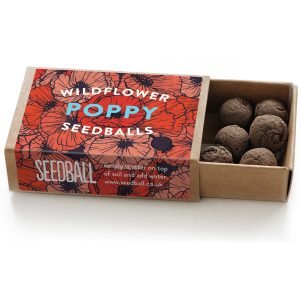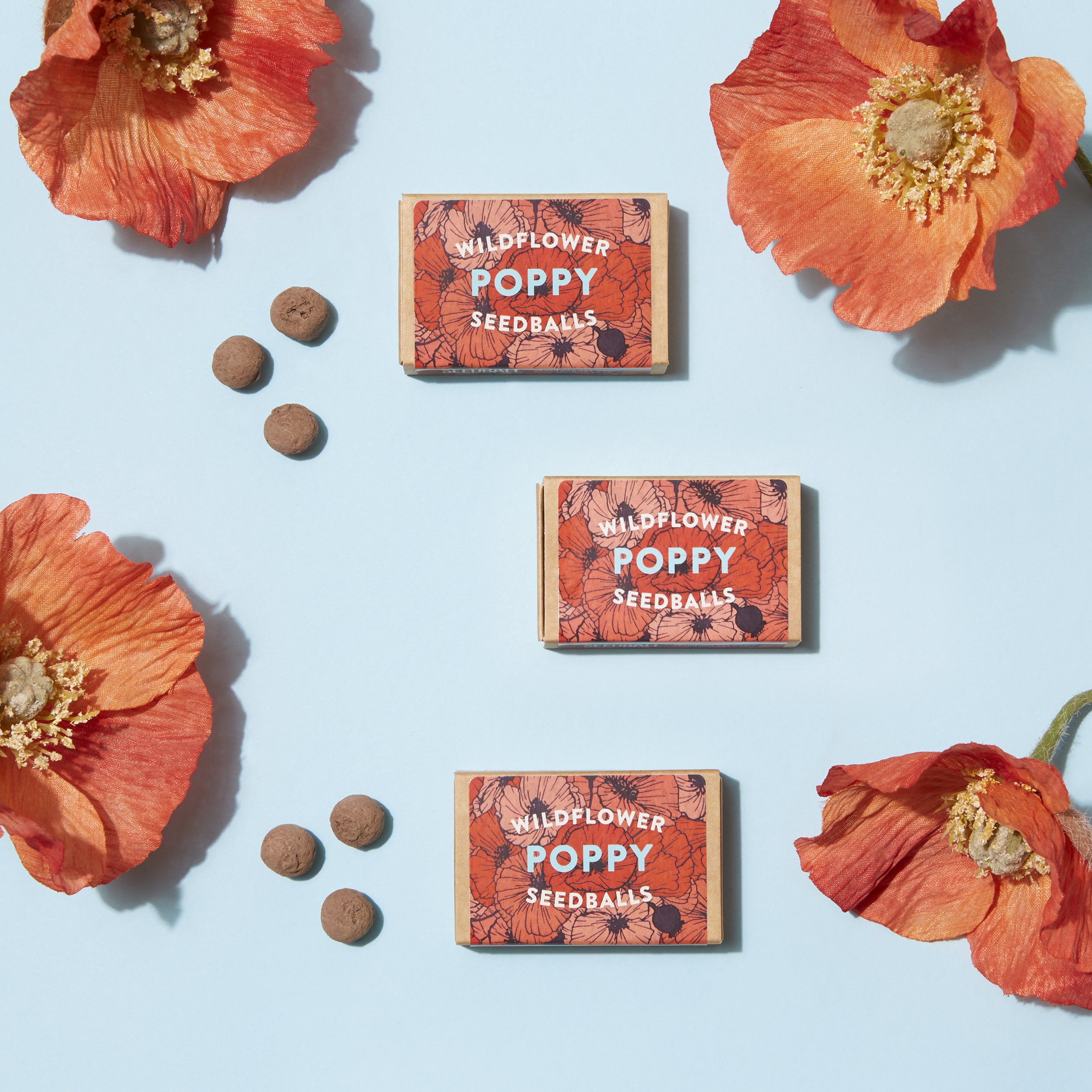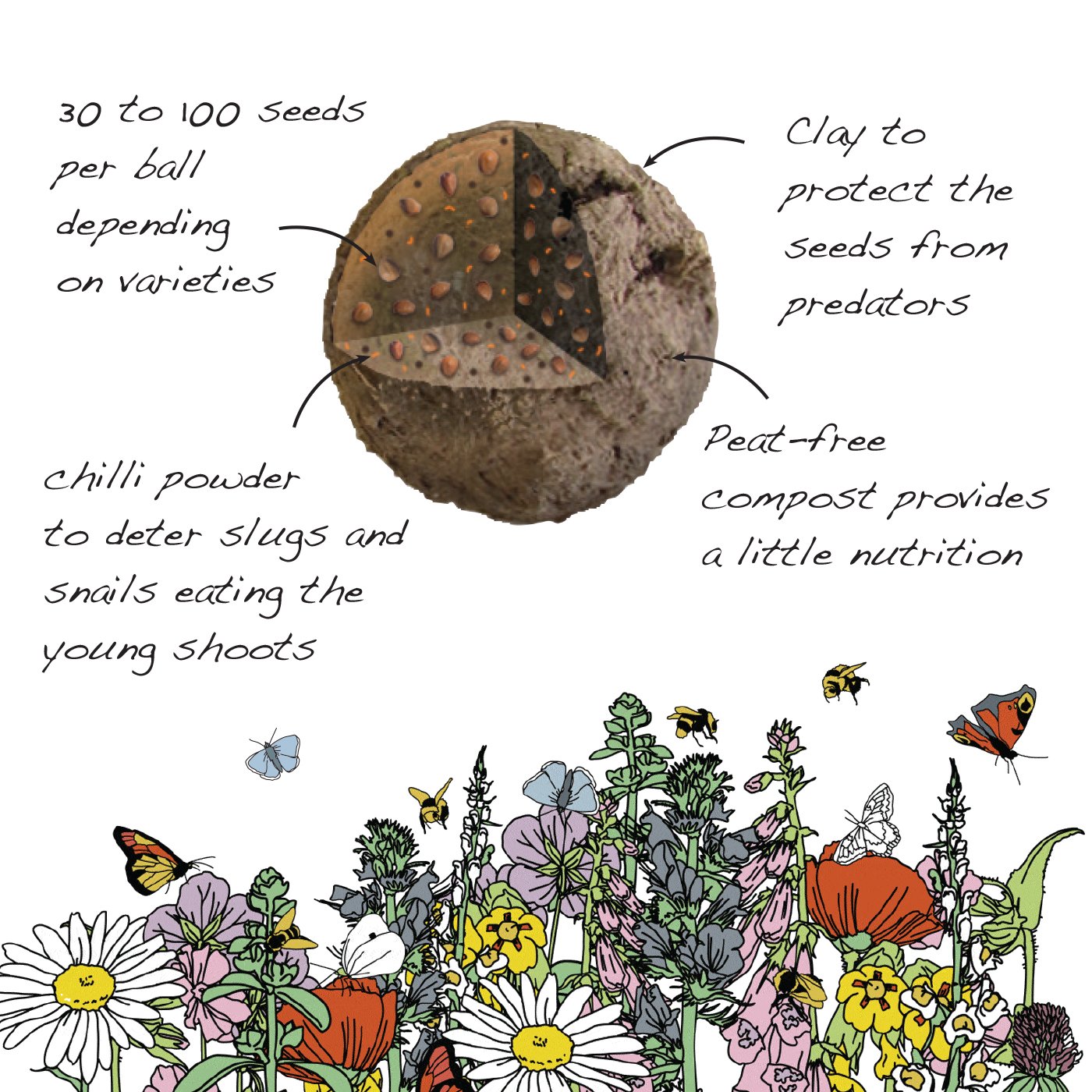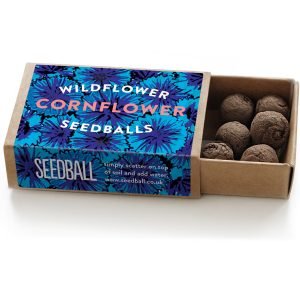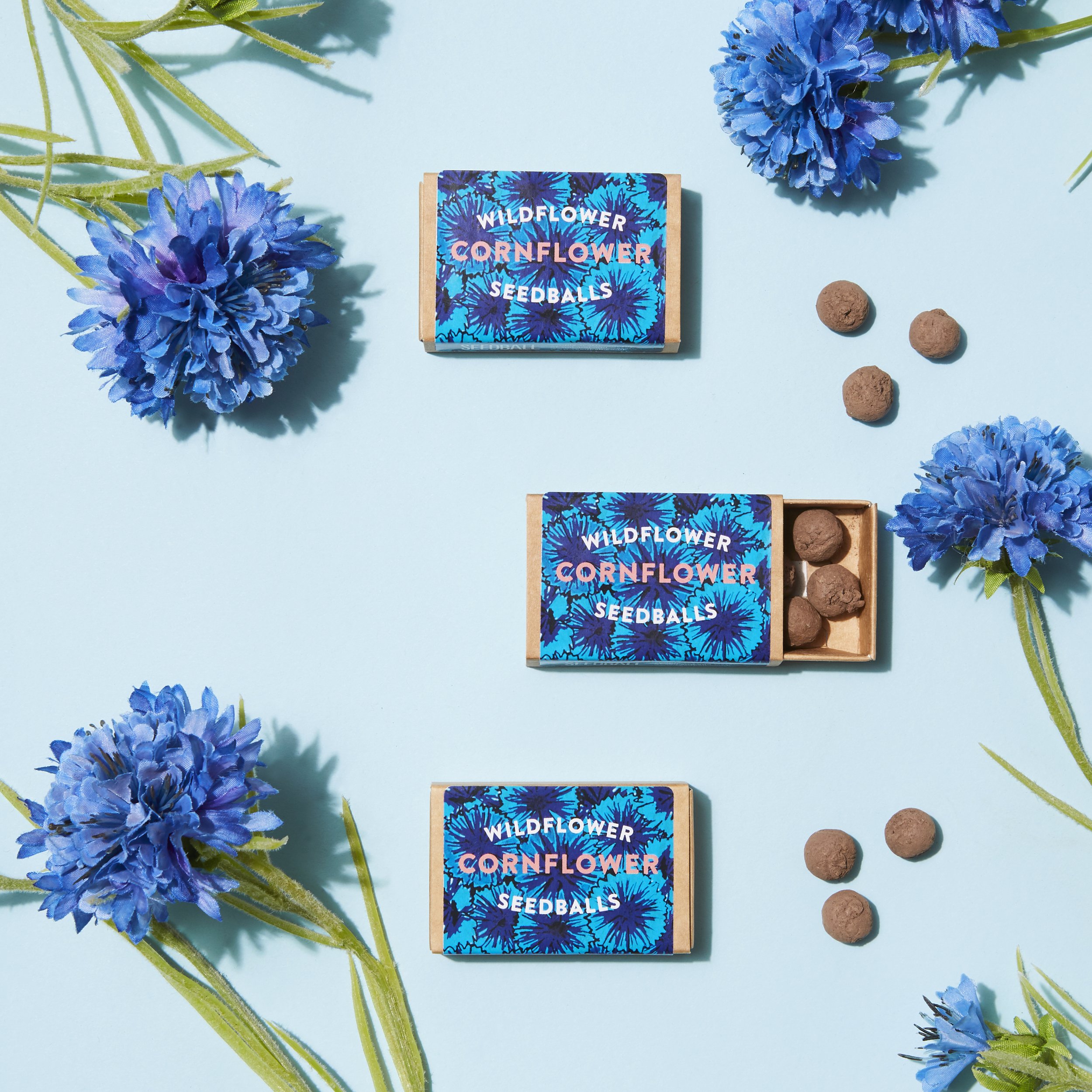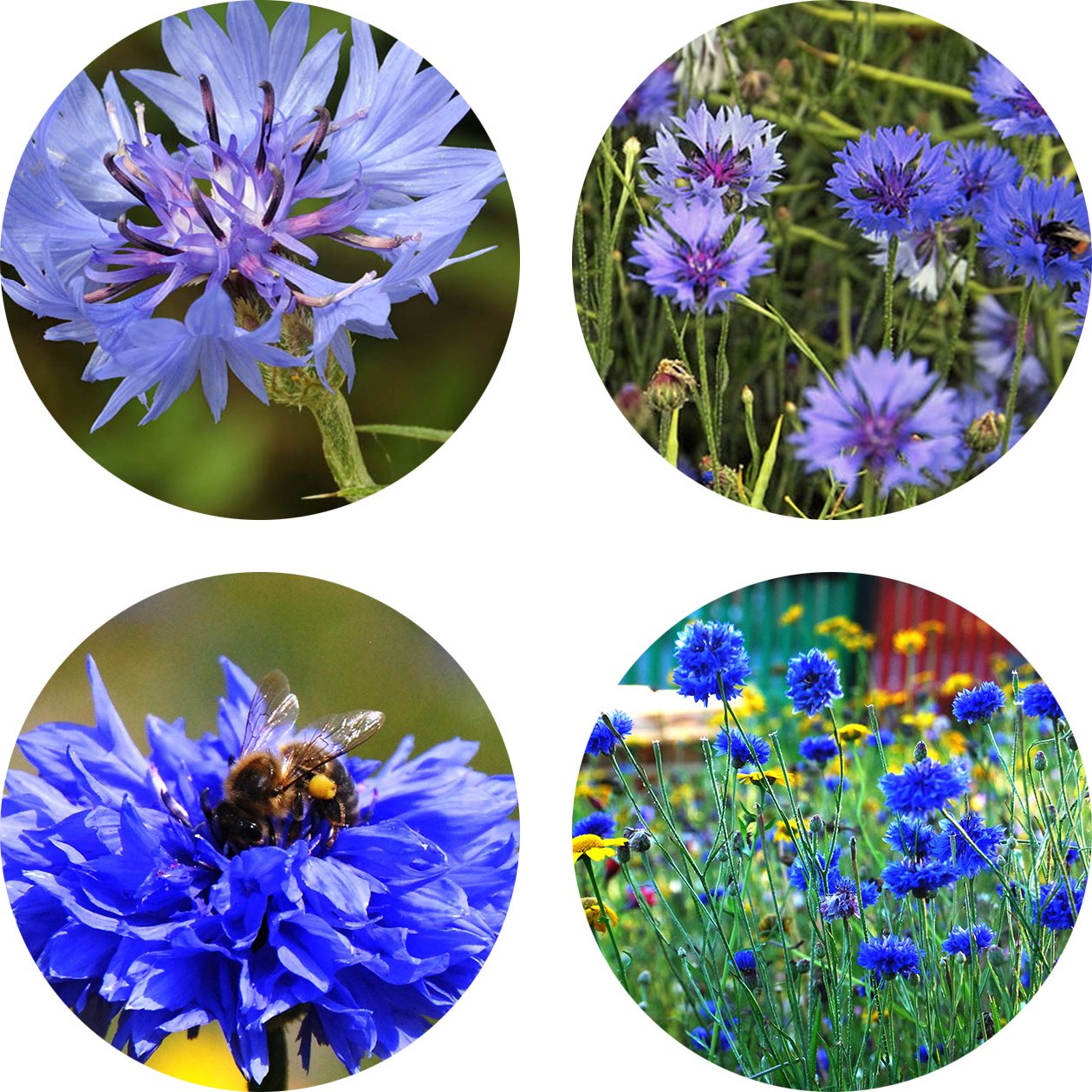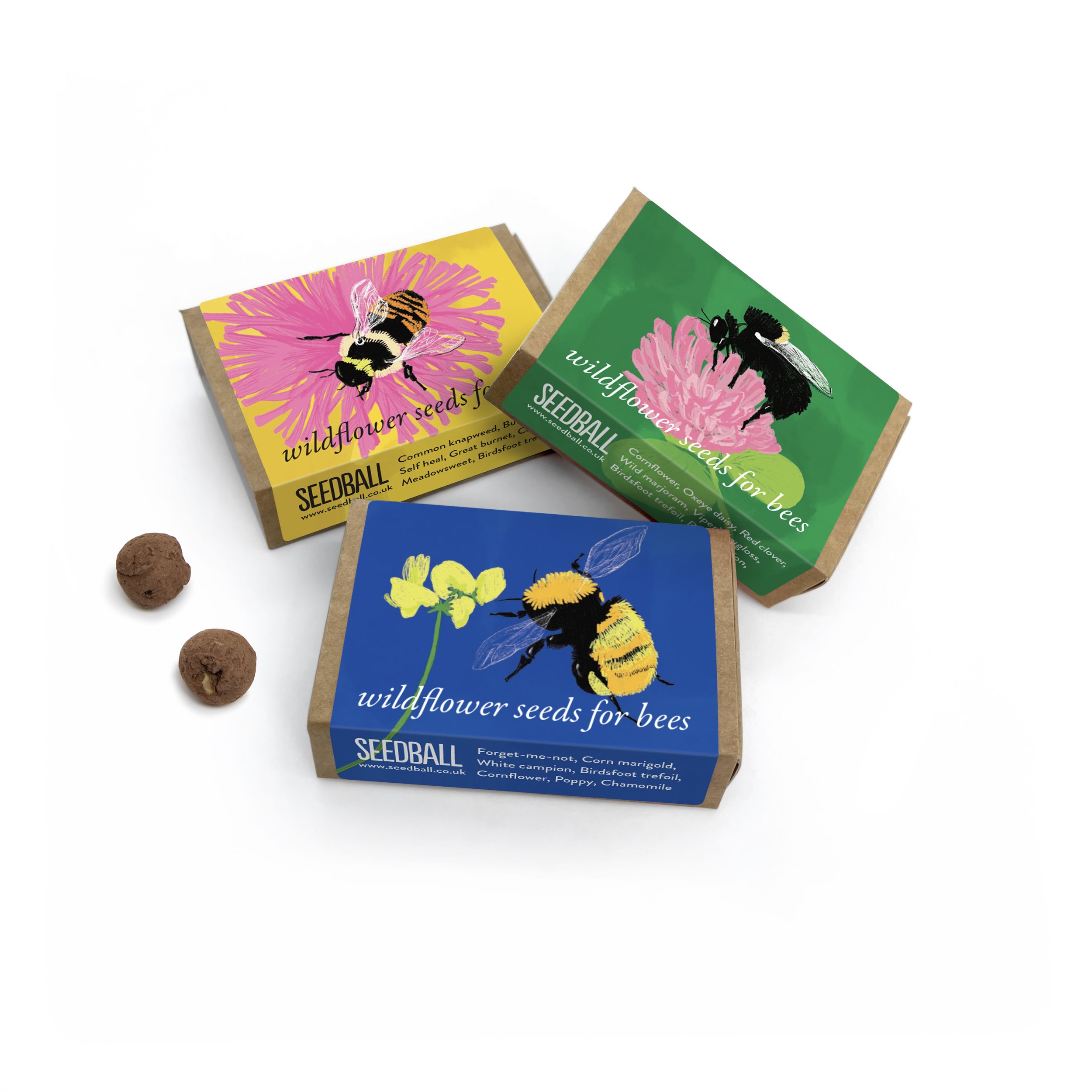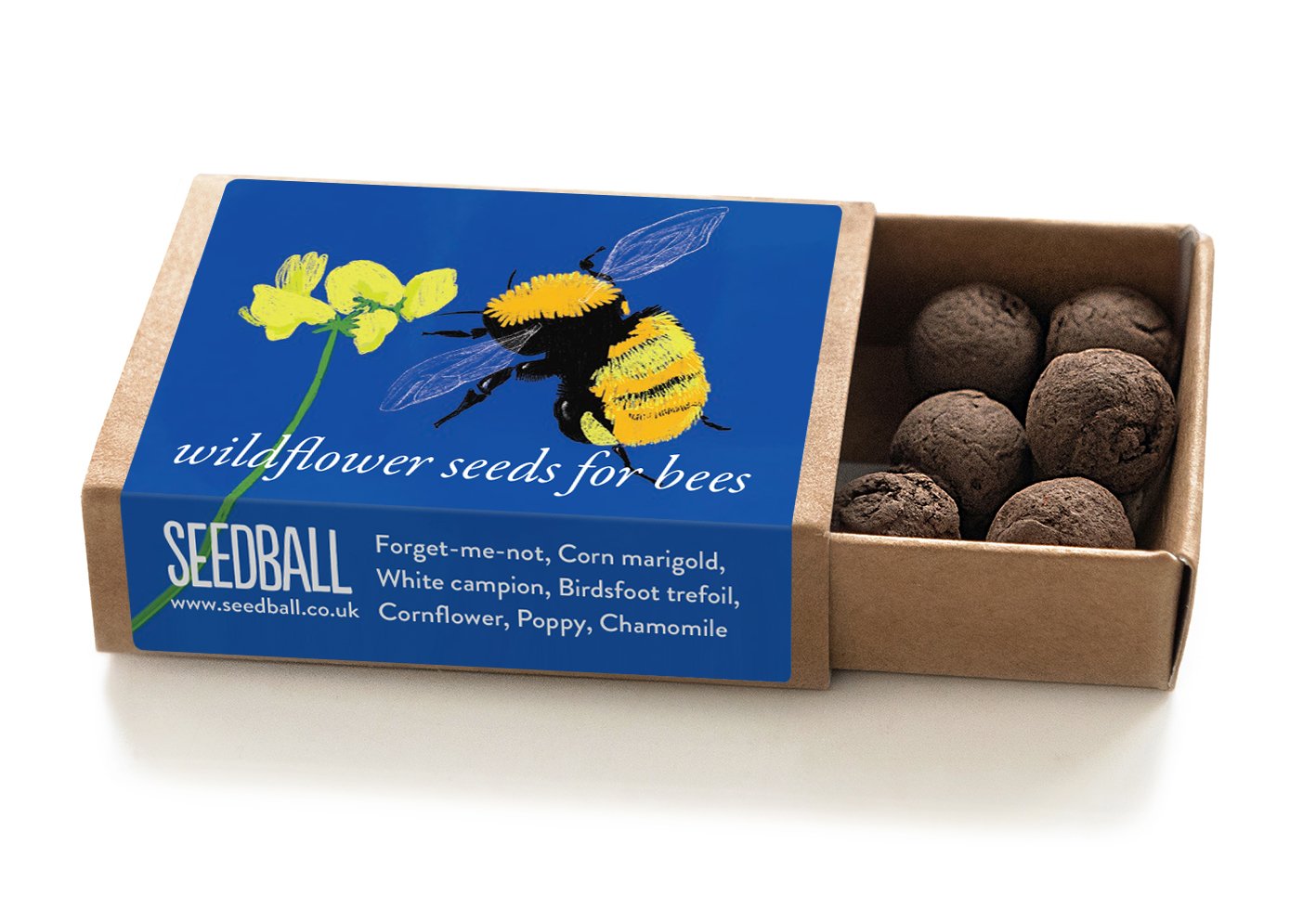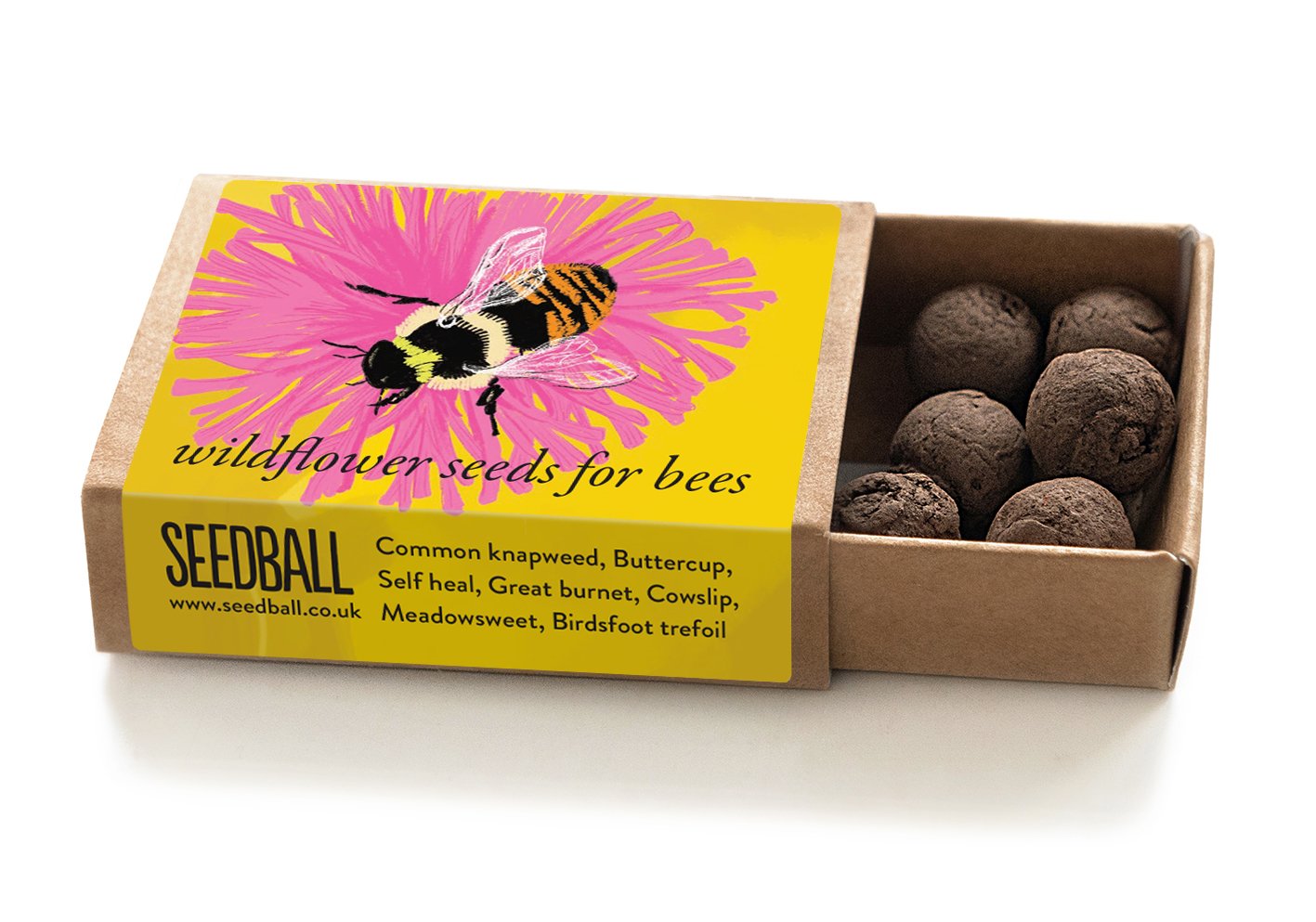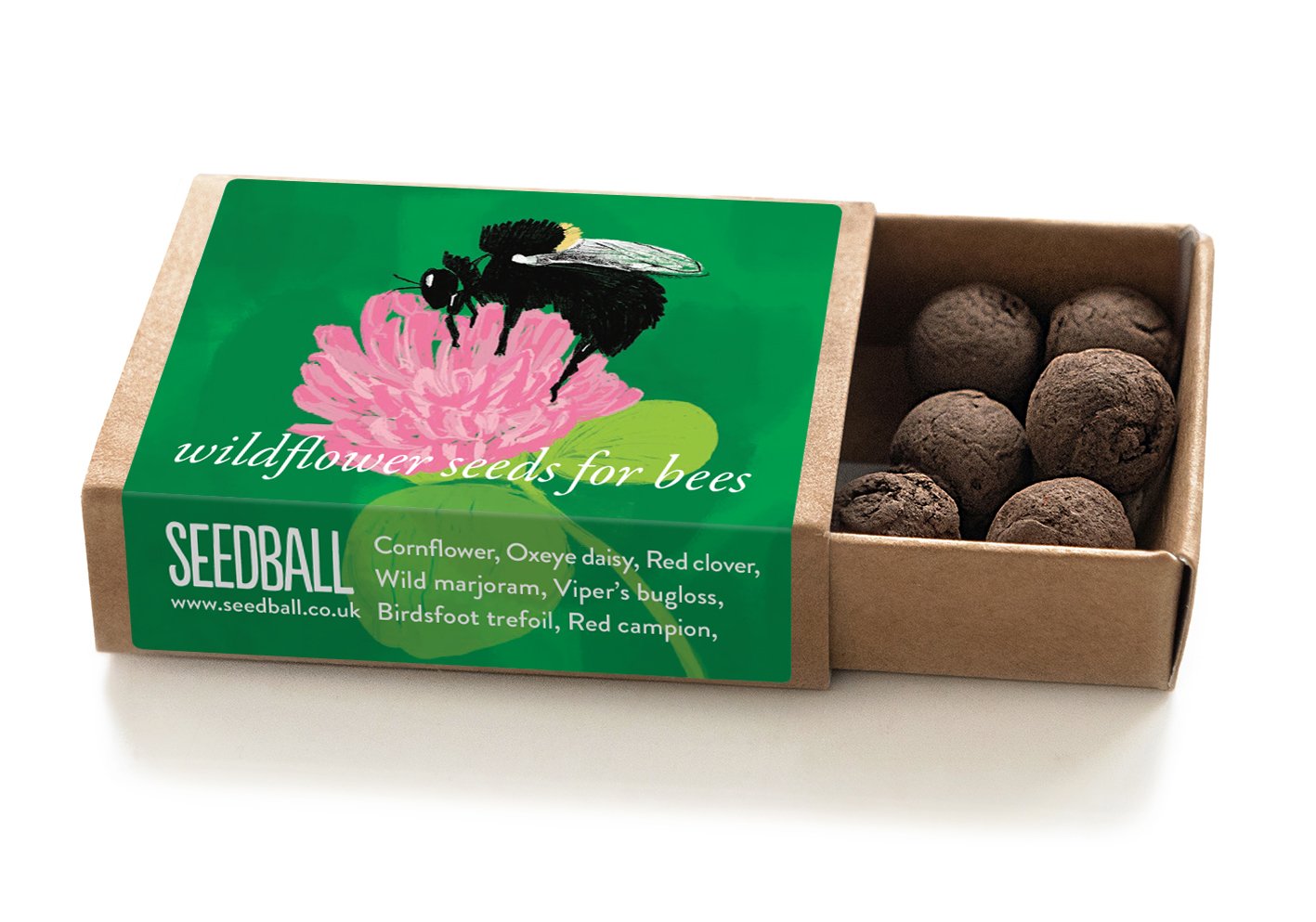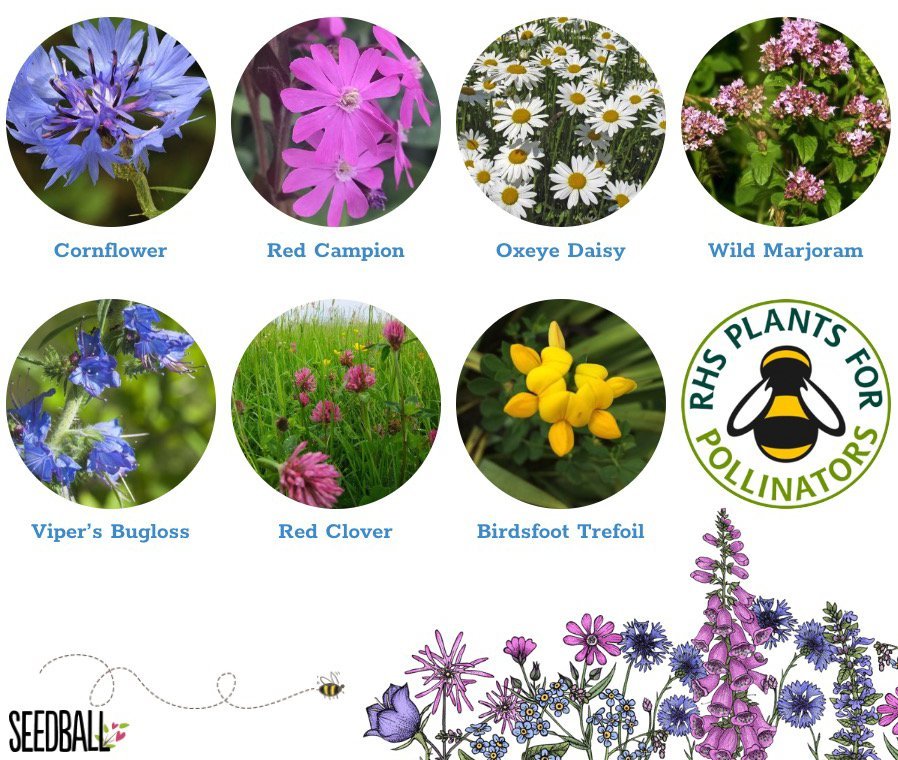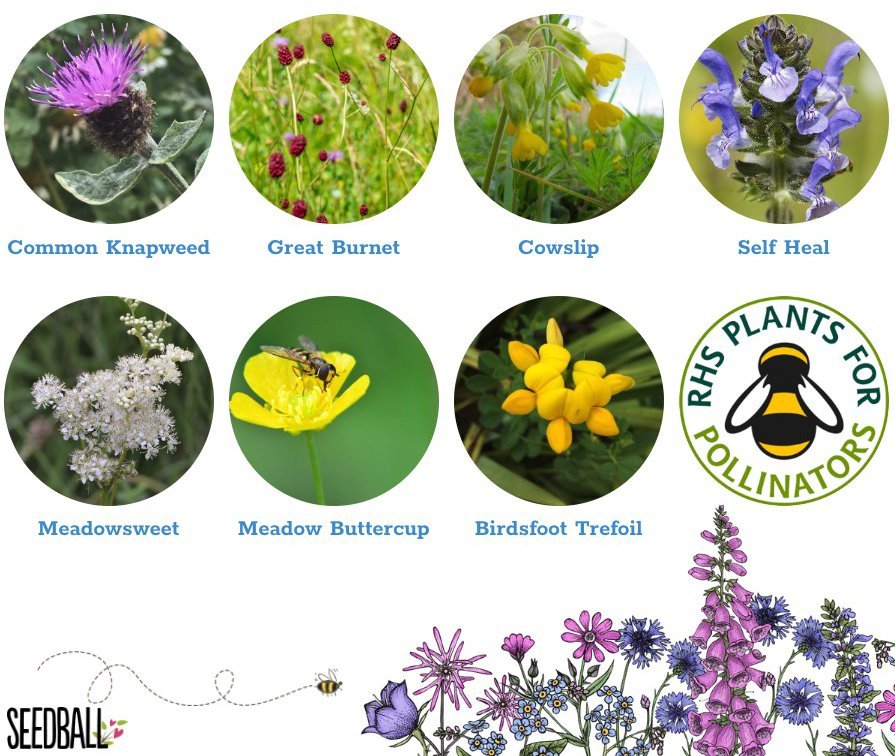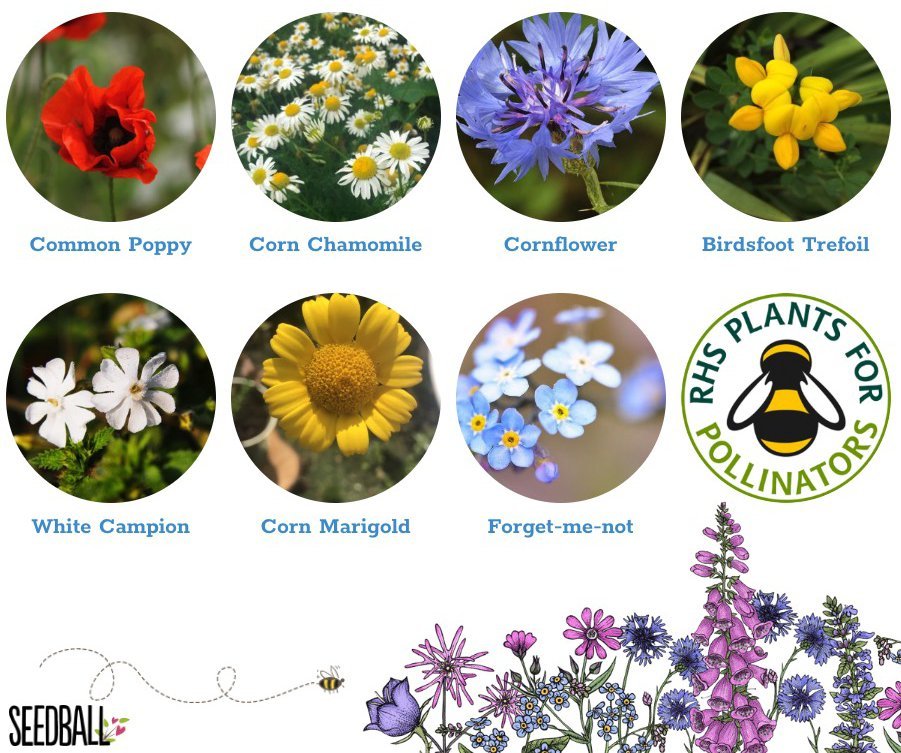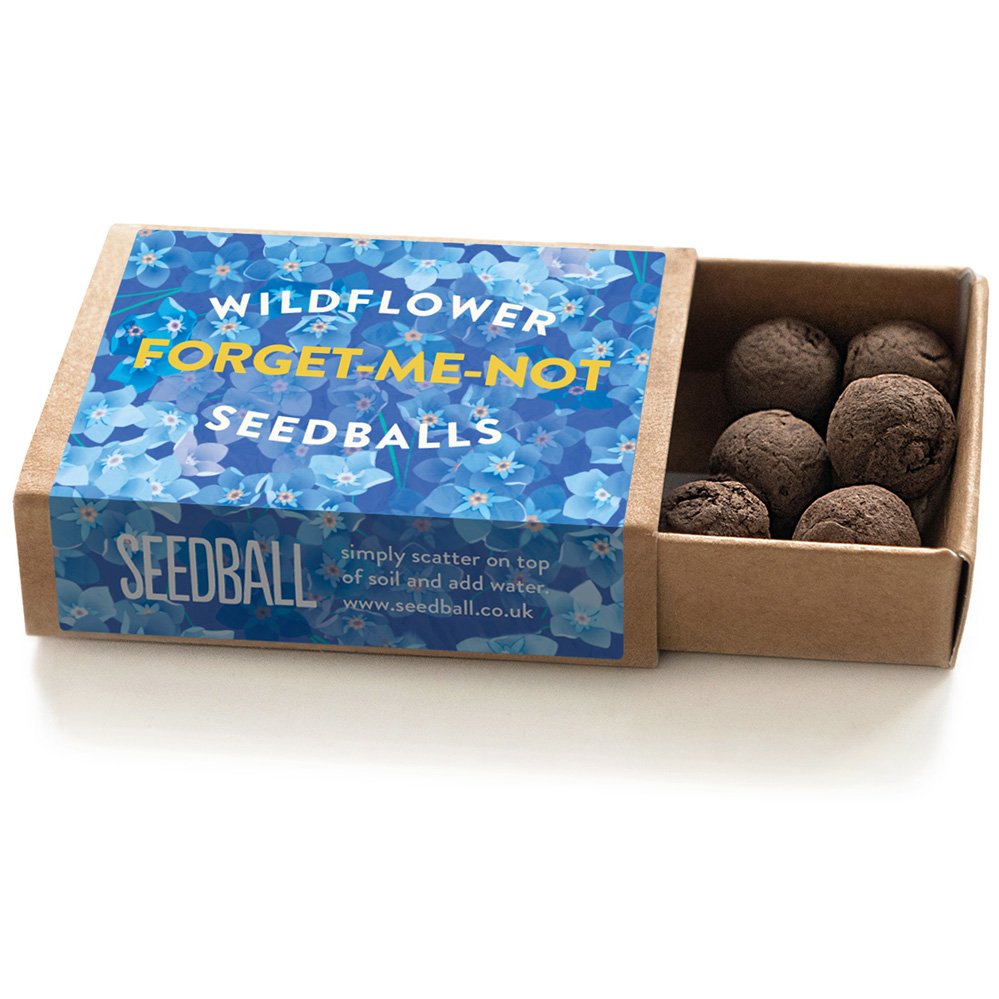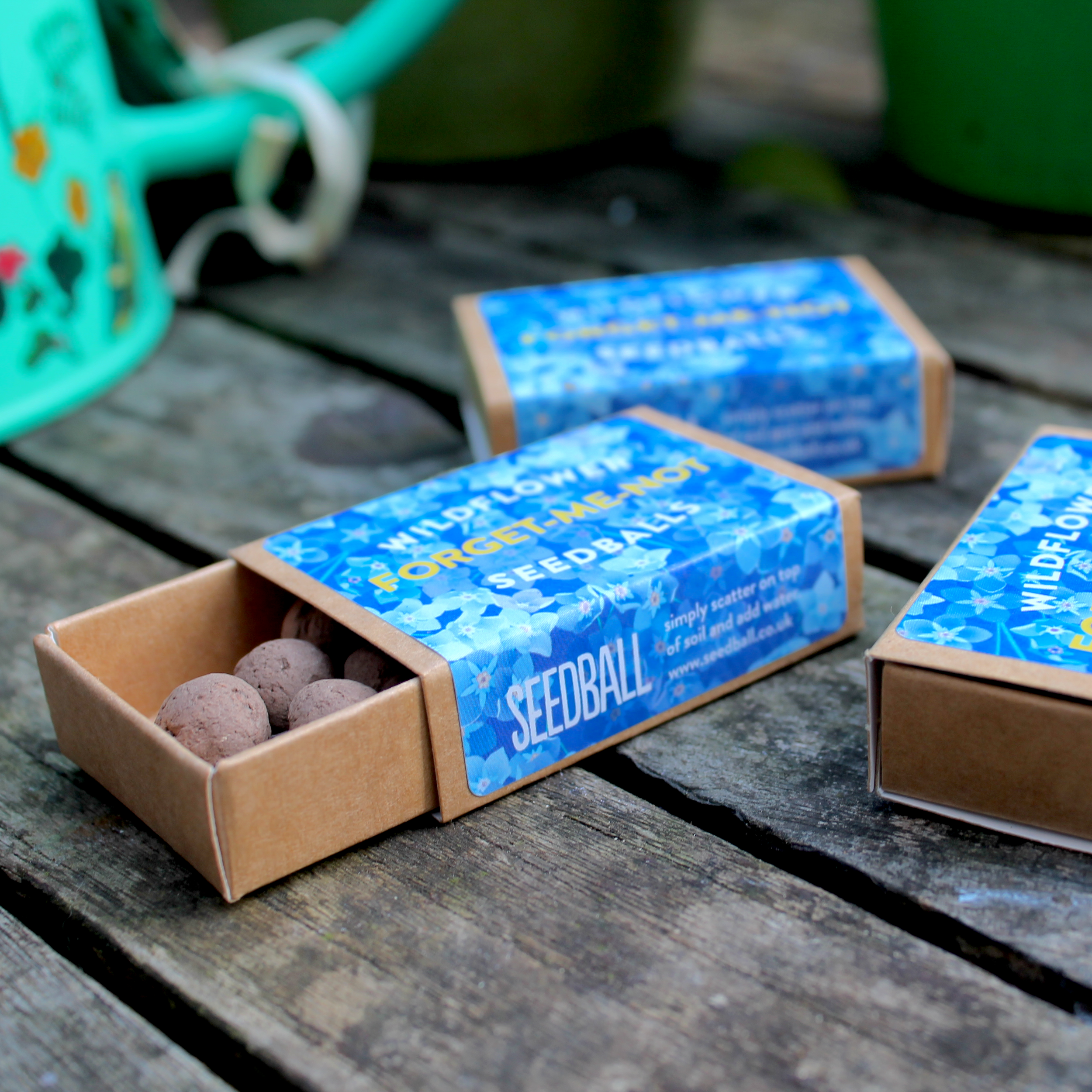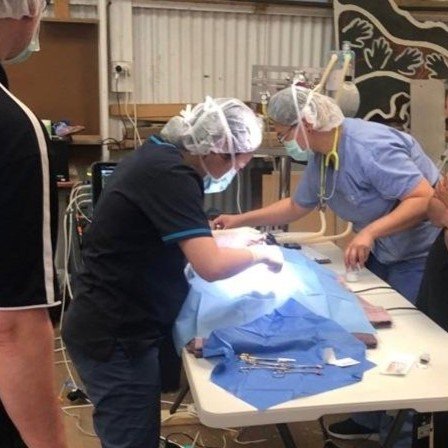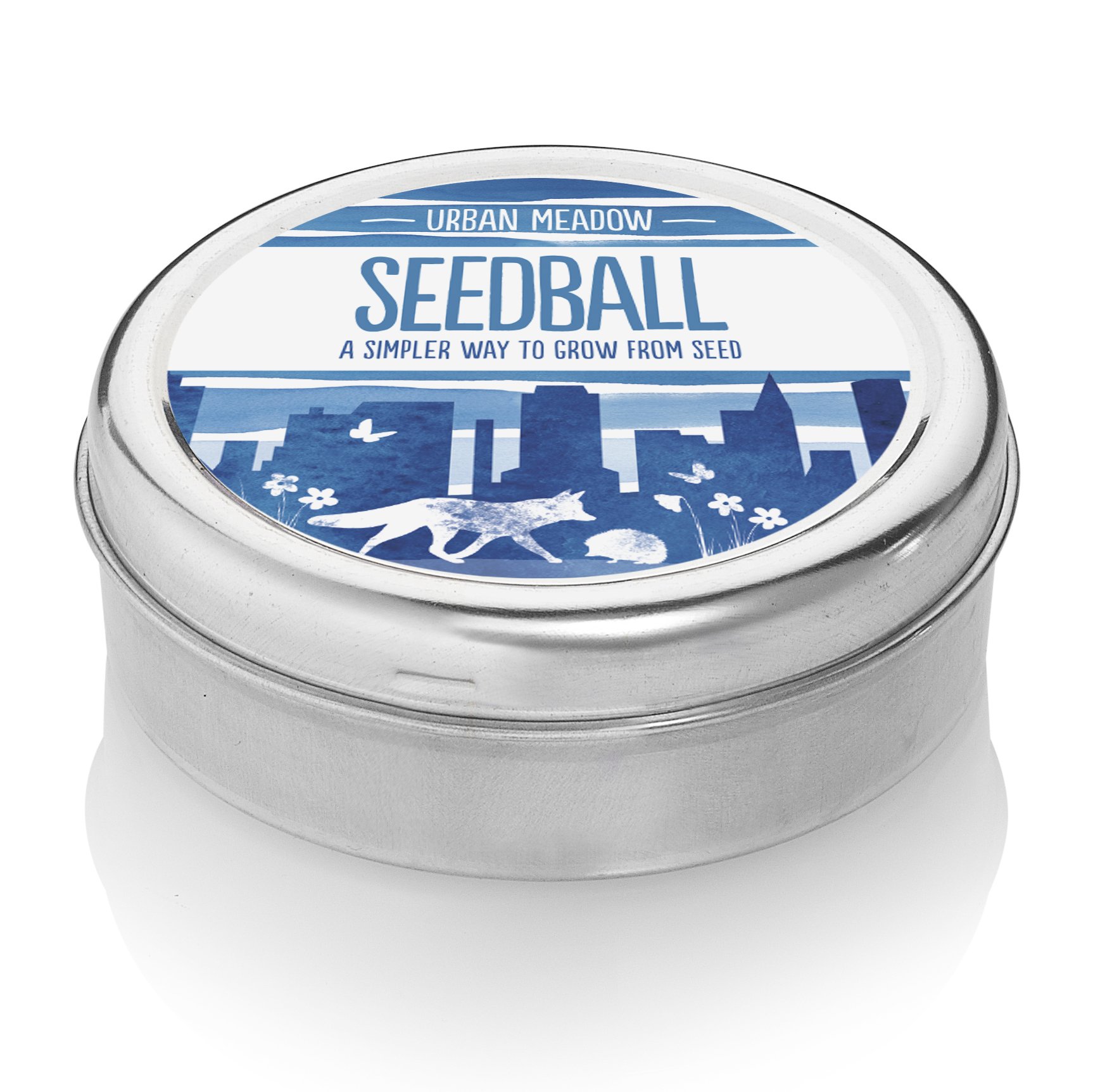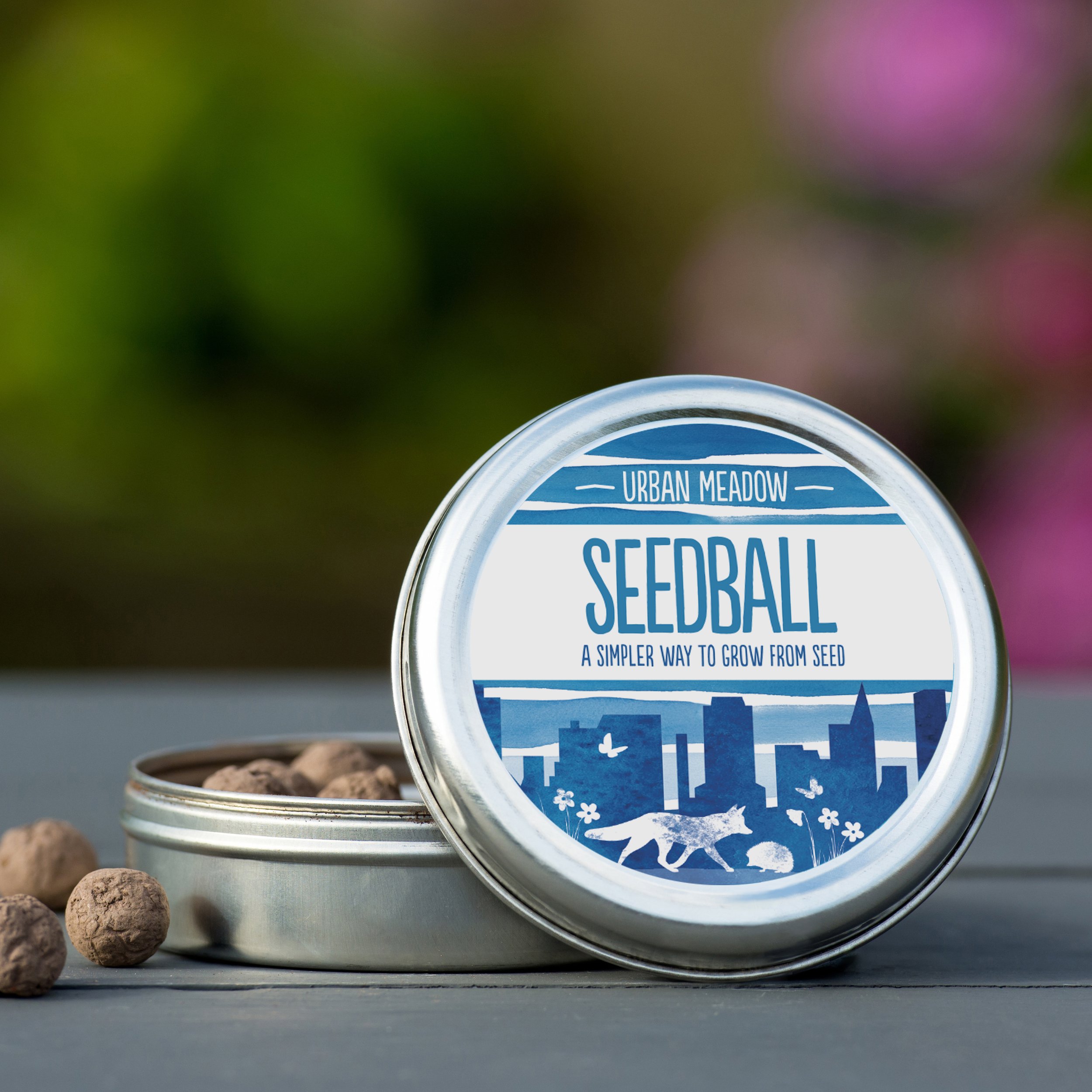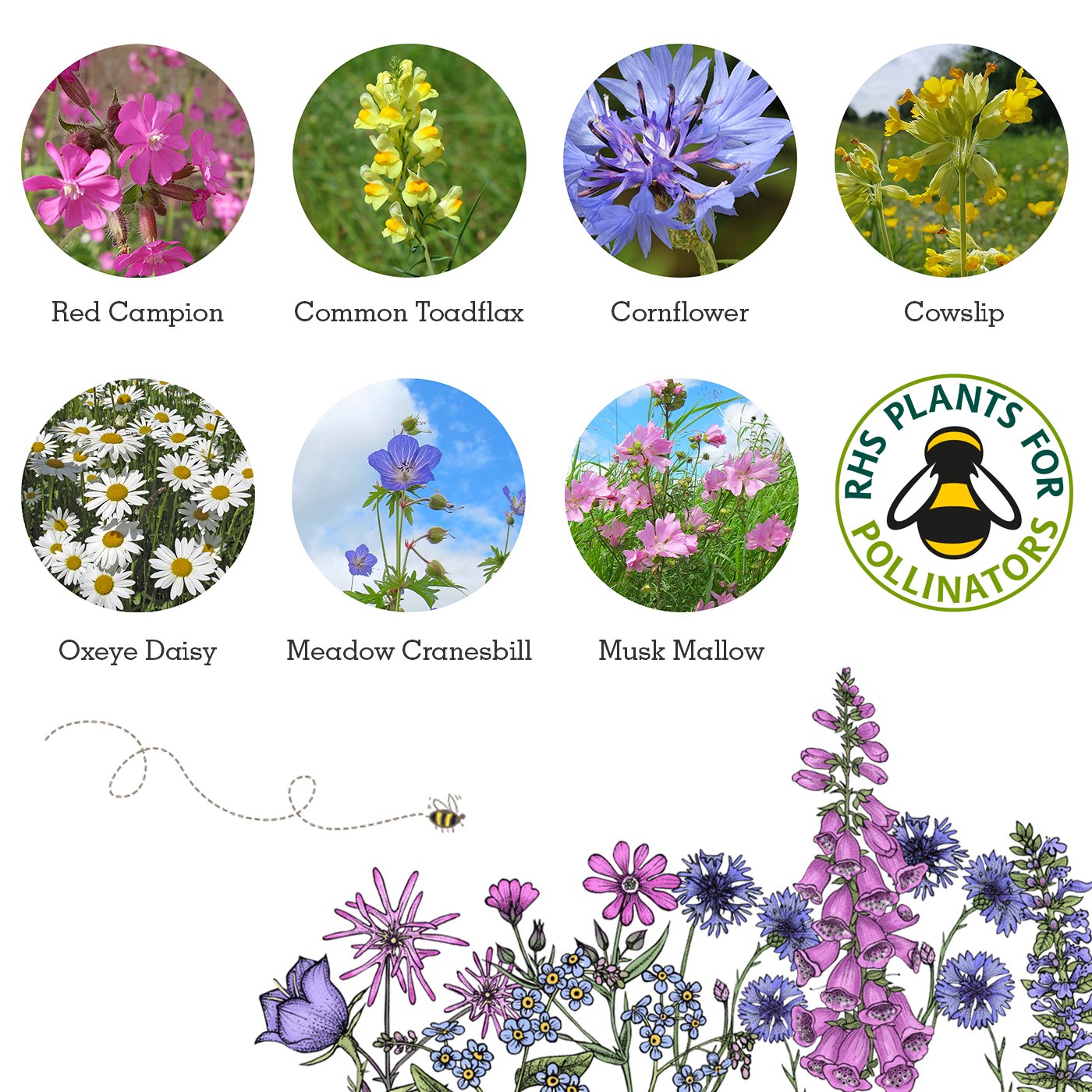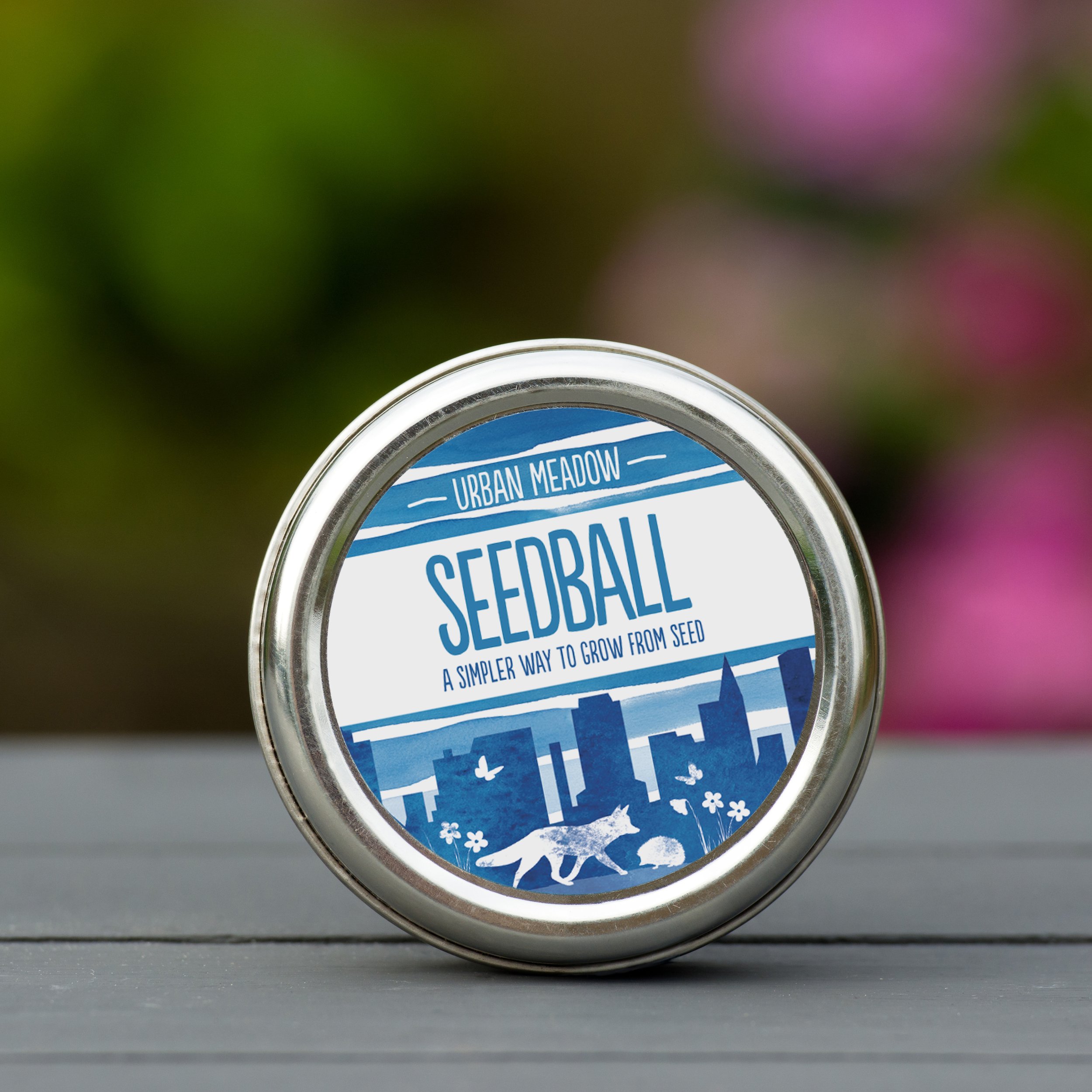Add a carpet of vibrant red blooms to borders, pots and roadside verges with our Poppy Seedballs. Each tin contains 20 ready-to-scatter seedballs, each made from clay, peat-free compost and a concentrated portion of poppy seed so the seeds stay protected until conditions are right.
Common Poppy
A bright red flowering annual. The remembrance poppy is the common field poppy, one of the first wildflowers to colonise disturbed ground or fallow cornfields. It became identified with the battle zones of the First World War, or Flanders Fields, which were originally corn fields.
Poppies are celebrated for their showy flowers, easy self-seeding habit and value to garden wildlife — their bright blooms attract bees and other pollinators across the summer months.
Why seedballs
Seedballs are ideal for low-effort rewilding: simply scatter on bare soil or compost in spring or autumn and nature does the rest — no digging required. The clay casing helps reduce seed loss to birds and wind while the enclosed compost gives seedlings a head start.
Why choose these poppy seedballs:
Instant colour: Vivid red for a classic wildflower look.
Pollinator friendly: Poppies provide nectar and attract bees and beneficial insects.
Low effort: Ready-to-scatter, peat-free and perfect for balconies, tubs, paving cracks and small beds.
Seedballs use a simple, low-impact method (clay + peat-free compost + seed — sometimes a pinch of natural chilli to deter predators) to improve germination and reduce waste.
Seedball was founded by conservation scientists to make it easy for people to grow native wildflowers and support pollinators. Seedballs use UK-sourced wildflower seed, peat-free compost and recyclable/compostable packaging where possible, so your purchase helps both bumblebees and more sustainable gardening.
Add a carpet of vibrant red blooms to borders, pots and roadside verges with our Poppy Seedballs. Each tin contains 20 ready-to-scatter seedballs, each made from clay, peat-free compost and a concentrated portion of poppy seed so the seeds stay protected until conditions are right.
Common Poppy
A bright red flowering annual. The remembrance poppy is the common field poppy, one of the first wildflowers to colonise disturbed ground or fallow cornfields. It became identified with the battle zones of the First World War, or Flanders Fields, which were originally corn fields.
Poppies are celebrated for their showy flowers, easy self-seeding habit and value to garden wildlife — their bright blooms attract bees and other pollinators across the summer months.
Why seedballs
Seedballs are ideal for low-effort rewilding: simply scatter on bare soil or compost in spring or autumn and nature does the rest — no digging required. The clay casing helps reduce seed loss to birds and wind while the enclosed compost gives seedlings a head start.
Why choose these poppy seedballs:
Instant colour: Vivid red for a classic wildflower look.
Pollinator friendly: Poppies provide nectar and attract bees and beneficial insects.
Low effort: Ready-to-scatter, peat-free and perfect for balconies, tubs, paving cracks and small beds.
Seedballs use a simple, low-impact method (clay + peat-free compost + seed — sometimes a pinch of natural chilli to deter predators) to improve germination and reduce waste.
Seedball was founded by conservation scientists to make it easy for people to grow native wildflowers and support pollinators. Seedballs use UK-sourced wildflower seed, peat-free compost and recyclable/compostable packaging where possible, so your purchase helps both bumblebees and more sustainable gardening.

